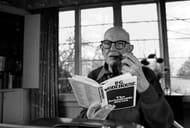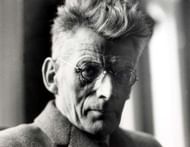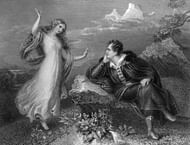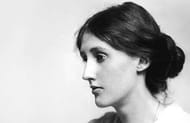Cricket has perhaps captured more writers’ imagination than any other sport. From George Orwell using cricket as a symbol of English morality to Douglas Adam’s ‘Wooden Pillar of Nature and Spirituality’ referring to the Ashes, in the Hitchhiker’s series, the game’s appeal to the literary world has been like none other.
Also Read: Top 10 celebrity cricket fans around the world
A few renowned literary figures were even players of the game they loved and so often influenced their works.
Sir Arthur Conan Doyle
The creator of the legendary detective Sherlock Holmes, Doyle was an avid cricketer, playing 10 first-class matches for the Marylebone Cricket Club. A decent batsman, with a high score of 43, Doyle once took the wicket of W.G Grace, hailed by historians as the greatest cricketer of all time. Doyle was so proud of his achievement that he wrote a 19-verse poem to commemorate it.
When the Author’s Cricket Club was established in 1905, Doyle was chosen as captain. He opened the batting and continued to play for Author’s XI until the First World War.
More notably, however, it is believed that Conan Doyle’s most celebrated character, Sherlock Holmes’ Christian name is inspired by an amalgam of Mordecai Sherwin and Frank Shacklock, former Nottinghamshire players. And that his brother, Mycroft Holmes’ Christian name was suggested by the Derbyshire cricketers. In total, Doyle is thought to have named as many as 249 characters after cricketers.
J M Barrie
Creator of Peter Pan, JM Barrie’s love for the game was far superior to his talent for it. He founded a cricket team for his friends, called the Allahakbarries, erroneously believing it to mean ‘Heaven Bless Us’, given his team’s poor cricketing skills. Amongst the team’s notable players were Doyle, Wodehouse, Rudyard Kipling, H.G. Wells, Jerome K Jerome and Lord Alfred Tennyson’s grandson.
He wrote a 40-page book about his team which was reprinted in 1950 with a foreword by Don Bradman.
Sir P.G. Wodehouse
Besides being among the most acclaimed humourists English literature ever had, Wodehouse was also a fanatic of the game. A reasonable player, Wodehouse spent two years in the playing XI for his college. His literature though was more significantly influenced by his love for the game.
Wodehouse’s most famous character, butler Reginald Jeeves, was named after Percy Jeeves, a Warwickshire bowler who was eventually killed in the WWI, never learning of his influence on the character. Several of Wodehouse’s best works are themed around cricket, collected in a book titled Wodehouse At The Wicket.
Wodehouse, with Doyle, opened the batting for the Authors XI until the club’s last game in 1912.
A.A Milne
Author of Winnie-the-Pooh, Milne was a passionate cricketer, frequently representing the Author’s XI. He was once so moved by the game that he wrote an ode to his cricket bat.
Samuel Beckett
Among the most influential writers of the 20th century, Samuel Beckett is also the only first-class cricketer to win a Nobel Prize. The ‘Waiting for Godot’ absurdist playwright excelled at cricket as a left-hand batsman and left-arm medium-pace bowler.
Siegfried Sassoon
Until the outbreak of the First World War, Sassoon was a seasoned cricketer, captaining the Sassoon’s XI and playing respectably for Marlborough College. He aspired to play for the Kent Cricket Club and sometimes played alongside Arthur Conan Doyle. His service during the war, however, went on to make him one of the greatest war-poets ever produced. His bitter, satirical war prose strongly contradicts some of his romantic poems on the game.
EW Hornung
Though his poor health did not permit him to play the game regularly, Hornung created one of literature’s most dashing characters, AF Raffles, a gentleman thief. The second most popular fictional character of his time, behind Sherlock Holmes, Raffles was a cricketer by day and thief by night.
George Orwell noted that it was Raffles cricketing background that allowed Hornung to draw the ‘sharpest moral contrasts’.
Doyle’s brother-in-law, Hornung occasionally featured in the Author’s XI.
Lord Byron
The leading poet of the Romantic Movement, Lord Byron was a cricketer for his school, though a poor one. He represented Harrow in the very first Eton v Harrow match at Lord’s, which then went one to become one of the longest running annual sporting fixtures in the world.
Virginia Woolf
A pioneer of modernism, Virginia Woolf grew up playing the game. Along with her sister Vanessa and brother Adrian, cricket played an important role in her youth. She once said, ’Vanessa and I were what we call tomboys; that is, we played cricket, scrambled over rocks, climbed trees, were said not to care for clothes and so on.” In an age where cricket was heavily gender-biased, Woolf’s love for the sport was encouraging.
Harold Pinter
Nobel Prize-winning English playwright, Pinter was a cricket obsessive, taking his bat with him when evacuated during the Blitz. He was chairman of the Gaieties Cricket Club, putting more energy into running the team than into almost anything else. He once remarked, "I tend to think that cricket is the greatest thing God ever created on earth”
From the world of writing to the world at the wicket, here’s to a long-standing and entertaining partnership between the two.
Follow IPL Auction 2025 Live Updates, News & Biddings at Sportskeeda. Get the fastest updates on Mega-Auction and cricket news




